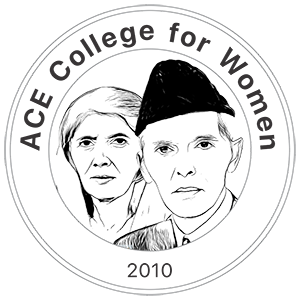Neurological Factors and Gastrointestinal Health in Post-Acute COVID-19 Syndrome (PACS)
| Received 23 Oct, 2023 |
Accepted 21 Feb, 2024 |
Published 30 Jun, 2024 |
Post-acute COVID-19 syndrome, often known as “long COVID,” results from the global COVID-19 pandemic and is defined by the persistence of clinical symptoms long after the original infection has faded. In this study, the complex connection between mental health and gastrointestinal function in the setting of post-acute COVID-19 syndrome was explored. The study, based on clinical data and evaluations of the relevant literature, highlights the enormous effect of neurological and neuropsychiatric disorders on patients’ lives. Not only do many symptoms like weariness, cognitive impairment and sleep difficulties persist long after the acute phase of the disease has gone, but they tend to worsen with time. The research also examines the incidence of depression after COVID-19 infection, looking at potential risk variables such as age, gender and inflammatory status. Individuals recuperating from COVID-19 experience heightened sensitivity to psychological distress owing to variables including isolation, financial instability and delayed schooling, highlighting the epidemic’s more considerable social and economic repercussions. This investigation also sheds insight into the function of systemic inflammation and microbiota dysbiosis in post-acute COVID-19 syndrome and the intricate relationship between the gut and the brain. The study highlights the critical need for a multifaceted strategy for addressing this illness, calling for coordinated medical, psychological and social therapies. Essential components of a comprehensive plan to address the various issues faced by post-acute COVID-19 syndrome include access to healthcare services, mental health support, financial aid and possibilities for social reintegration. To improve the quality of life for people dealing with the fallout of this unprecedented global health crisis, a deeper understanding of the interplay between psychological and social factors and gastrointestinal health is required.
How to Cite this paper?
APA-7 Style
Mahedi,
M.R., Shahidul Islam,
S.M., Jamali,
M., Wei,
C.R., Afrin,
S., Syrmos,
N. (2024). Neurological Factors and Gastrointestinal Health in Post-Acute COVID-19 Syndrome (PACS). Asian Science Bulletin, 2(2), 112-122. https://doi.org/10.3923/asb.2024.112.122
ACS Style
Mahedi,
M.R.; Shahidul Islam,
S.M.; Jamali,
M.; Wei,
C.R.; Afrin,
S.; Syrmos,
N. Neurological Factors and Gastrointestinal Health in Post-Acute COVID-19 Syndrome (PACS). Asian Sci. Bul 2024, 2, 112-122. https://doi.org/10.3923/asb.2024.112.122
AMA Style
Mahedi
MR, Shahidul Islam
SM, Jamali
M, Wei
CR, Afrin
S, Syrmos
N. Neurological Factors and Gastrointestinal Health in Post-Acute COVID-19 Syndrome (PACS). Asian Science Bulletin. 2024; 2(2): 112-122. https://doi.org/10.3923/asb.2024.112.122
Chicago/Turabian Style
Mahedi, Md., Rezwan Ahmed, Syed Mahmood Shahidul Islam, Mohammad Jamali, Calvin Ronchen Wei, Sadia Afrin, and Nikolaos Syrmos.
2024. "Neurological Factors and Gastrointestinal Health in Post-Acute COVID-19 Syndrome (PACS)" Asian Science Bulletin 2, no. 2: 112-122. https://doi.org/10.3923/asb.2024.112.122

This work is licensed under a Creative Commons Attribution 4.0 International License.




